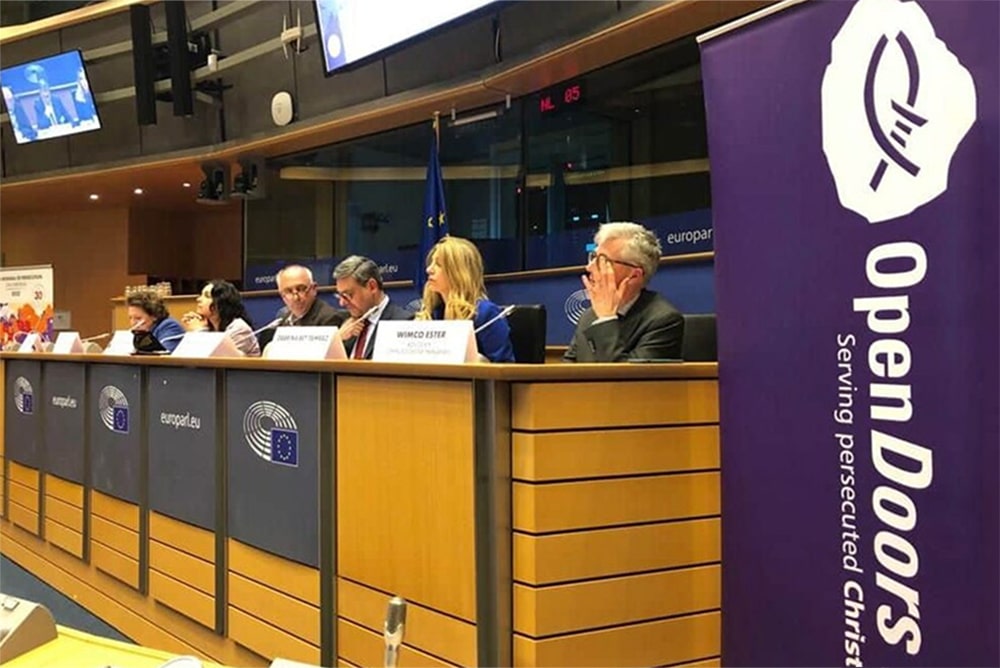16 months from the date it opened infringement proceedings against Italy for its persistent discrimination against non-national university teaching staff (Lettori), the European Commission has decided to advance the proceedings to the reasoned opinion stage. Italy’s failure in the interim period to settle its liability to the Lettori for decades of discriminatory treatment explains why the Commission took its decision.
The infringement of the Treaty at issue in this increasingly high-profile case is Italy’s failure to correctly implement the 2006 European Court of Justice(CJEU) enforcement ruling in Case C-119/04 , the last of 4 rulings in favour of the Lettori in a line of jurisprudence which dates back to the seminal Allué ruling of 1989. Pilar Allué Day, a piece published in The European Times in May of this year, recounts how Italy has managed to evade its obligations to the Lettori under each of these CJEU rulings from 1989 to the present.
The simplicity of the solution of the Lettori case renders the duration of the breach all the more remarkable. Implementation of the 2006 enforcement ruling merely required the universities to pay settlements for reconstruction of career from the date of first employment to the Lettori based on the minimum parameter of part-time researcher or more favourable parameters won before Italian courts, as provided for under the terms of an Italian March 2004 law, a law which was approved by the CJEU.
But Italy has consistently tried to subordinate this clear-cut ruling to Italian arrangements and interpretations. The Gelmini Law of 2010 retrospectively interpreted the March 2004 law in a restrictive manner which placed limits on the reconstruction of career due to the Lettori, limits nowhere condoned in the 2006 ruling. A blueprint of a contract for universities and Lettori introduced by interministerial decree in 2019 to give effect to the CJEU jurisprudence effectively ignored the rights to settlements of retired Lettori. Since the litigation for parity of treatment dates back to the 1980s, these Lettori constitute a significant percentage of the beneficiaries of the CJEU case law.
In its press release, the Commission is explicit as to why it decided to send the reasoned opinion to Italy.
“The majority of universities did not take the steps needed for a correct reconstruction of the Lettori’s careers, the result being that most foreign lecturers have still not received the money to which they are entitled. Italy has not adopted the necessary measures since the launch of the infringement procedure in September 2021 and is therefore still discriminating against foreign lecturers.”
Should the Italian authorities fail to pay the settlements due under the ruling in Case C-119/04, then the Commission may refer the case to the CJEU for what would be the fifth ruling in the line of jurisprudence which dates back to Pilar Allué first victory in 1989. In such a scenario Italy’s lawyers would have the unenviable task of explaining to the Court why the March 2004 law- the enactment of which spared Italy the daily fines of €309,750 recommended by the Commission- was not subsequently implemented.
The infringement proceedings were preceded by pilot proceedings, a procedure introduced to resolve disputes amicably with member states and prevent recourse to litigation. Over a 10-year period it markedly failed to achieve its objectives. The move to infringement procedures proper with their broadened scope is credited to the evidence of discrimination collected in the national Census of Lettori and to other depositions of Asso. CEL.L, an official complainant in the infringement proceedings, and FLC CGIL, Italy’s largest trade union. That FLC CGIL denounced the discriminatory practices of the state of which it is the main union and canvassed Italy’s MEP in support of the Lettori was obviously influential.
Heartened by the opening of infringement proceedings the Lettori have become more politically engaged. Modelled on the representations of FLC CGIL to Italy’s MEPs, and availing of the multilingualism of the category, Lettori wrote to the euro parliamentarians of their home countries to enlist their support for a move to the reasoned opinion stage. These successful mother-tongue representations including translations of Pilar Allué Day, the definitive legal history of the Lettori, were copied to President of the Commission, Ursula von der Leyen, who has taken a personal interest in the Lettori question.
The age profile and- from the mother-tongue slogans on the placards they carried – the range of nationalities of the Lettori were discernible as they staged a national protest against their discriminatory treatment outside the office of Anna Maria Bernini, Minister for Higher Education and Research, near the Tiber in Rome in December of last year. Gathered afterwards for lunch in nearby cafés before separating for train journeys to different parts of Italy, their flags and placards set down against walls and tables, the setting brought a wistful awareness that in their early and late 60s they were still marching, still protesting. It was not lost on the company that the right to the parity of treatment claimed outside the Ministry had been ratified in the historic Treaty of Rome, signed in 1957 at a venue within easy walking distance: Palazzo dei Conservatori on the Campidoglio.
As Guardian of the Treaties, it is the task of the Commission to ensure that the commitments made by the member states in Rome and other subsequent Treaty cities are respected. That it has had to open second infringement proceedings to compel implementation of the ruling resulting from the first proceedings is the measure of how intransigent and resistant Italy has been.
News that the proceedings had been moved to the reasoned opinion stage was warmly welcomed in universities across Italy. The decision was seen as a serious statement of the Commission’s intent to ensure full compliance with the Court sentence of 2006.
Retired Lettore Linda Armstrong, who taught at the University of Bologna from 1990 to 2020, is all too familiar with the universities’ practice of wilful evasion of CJEU sentences. Much to her exasperation the university withheld her Treaty right to parity of treatment over the course of her teaching career.
Commenting on the Commission’s decision to move the infringement proceedings to the reasoned opinion stage, Ms. Armstrong said:
“It is intolerable that Italy can flout the crystal-clear rulings of the CJEU with impunity. The parliamentary question from Clare Daly and her fellow Irish MEPs on the benefits and obligations of membership, which preceded the opening of the infringement proceedings, best posits the Lettori case before the conscience of the EU. That Italian universities receive billions of euros in funding from Europe while simultaneously denying Treaty rights in the workplace makes a mockery of European ideals. Hopefully, the move to the reasoned opinion stage will speed up the resolution of our case.”
In the press release giving news of the issue of the reasoned opinion, the Commission announced that it has given Italy two months to respond.


















